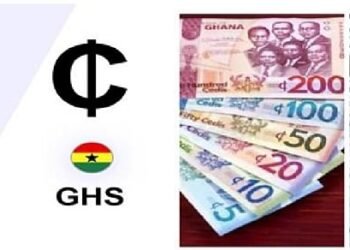Ghana’s ability to raise $5 billion from the issuance of bonds from the International Capital market (ICM) despite debt concerns may increase the appetite of other countries in the sub-region to explore that option.
Yet, predicated on Ghana’s success in raising its much coveted $5 billion from the international capital market this year. Since Ghana, like other African countries, is struggling with debt burden issues. Should this be successful, will signal to other countries in the region of sustained investor confidence in buying debt instruments from the region.
Ghana is the first country in sub-Saharan Africa to issue a non-conventional bond-type for sale in the international market this year. However, concerns remain mixed among analysts as to whether the country has the capacity to raise the dollar-rated bond sale.
Ghana is seeking to raise $5 billion from the ICM to support the 2021 budget as well as service outstanding debt repayments. Ghana plans to use $1.5 billion of the total for the 2021 budget and the rest to roll over domestic and international bonds.
Ghana’s zero-coupon bond sales
The dollar-rated bond is a zero-coupon dollar bond with four-year maturity, alongside seven year, twelve-year and twenty-year instruments. Meanwhile, this is the first time ever Ghana is issuing this type of bond- a zero-coupon dollar bond.
Unlike conventional bonds which pay interests, this type of bond sale does not pay interests until the bond matures. So effectively, over the next four years, Ghana would not be liable to make reoccurring interest payments. Investors would therefore receive the face value of their investment plus accrued interest at the bond’s maturity.
This suggests that, the incumbent government would not be burdened over the next couple of years in paying interest costs pertaining to this bond. But would be shifted to subsequent governments.
Last week, Fitch Ratings affirmed Ghana’s proposed dollar bond issuance at ‘B’ rating. The Ratings Agency indicated that this rating action was in line with the country’s Long Term Foreign Currency Issuer Default Rating (IDR).
The Ratings Agency cited the rising cost of government’s debt burden, the rather slow medium-term fiscal consolidation framework and imminent fiscal slippages as among reasons for such an outlook on the proposed dollar bond.
Debt burden among African countries
This notwithstanding, if successful, this would serve as a precursor for other African countries to access funds from the international capital markets to support their 2021 budgets; reduce strains on liquidity and finance debt repayment obligations.
West Africa’s largest economy, Nigeria may follow after Ghana, considering its struggle post-COVID. Expectations are that the country would grow by 2% of GDP this year, according to Fitch Ratings.
Already, countries like Kenya have reached a staff-level agreement with the IMF on a three-year, $2.4 billion financing package in efforts to stabilize, help reduce its high debts relative to GDP and to help in its next phase of response to the COVID-19 pandemic.
The region’s average debt-burden hovers around 64% of gross domestic product. That is in the near to medium-term, from an average of 47% in 2015-2019. Expectations are that revenue generation capacity will lag. Although the region’s GDP will rebound this year after it contracted last year.
But, Ghana has not sought debt relief from the IMF yet, and may not at least this year. Although its counterparts in the sub-region have done so in recent times. Nonetheless, Ghana’s debt has peaked into high risk of debt distress levels, as stated by the IMF.
Ghana’s current debt-to-GDP ratio as at year-end 2020 reached 76.1%. And Ratings Agency, Fitch Ratings has pegged Ghana’s debt to rise to 80% of GDP at year-end 2021.























